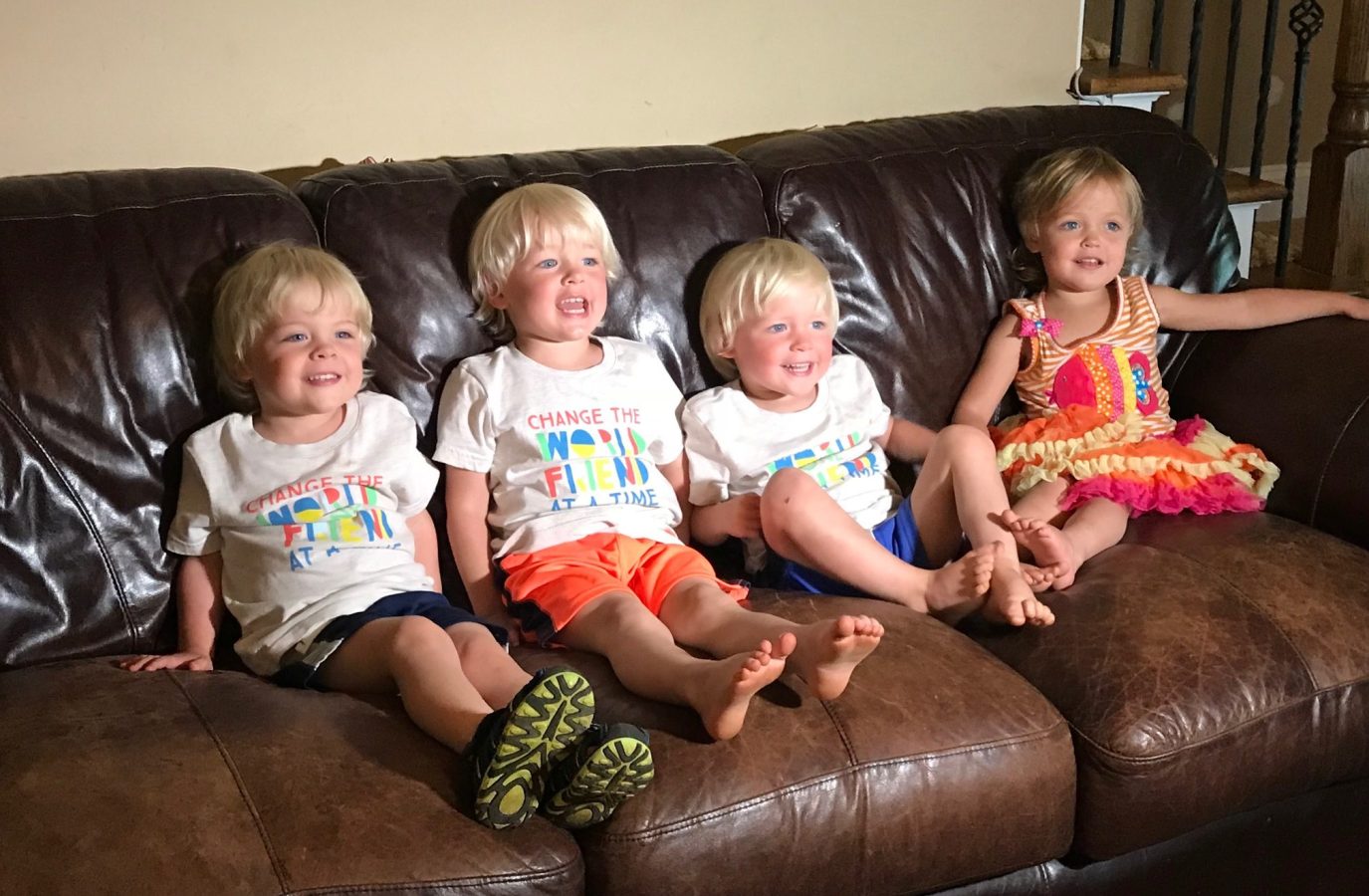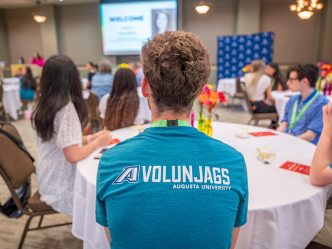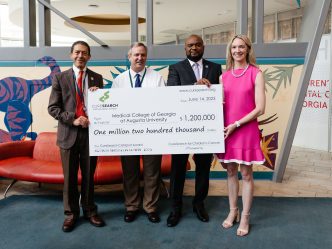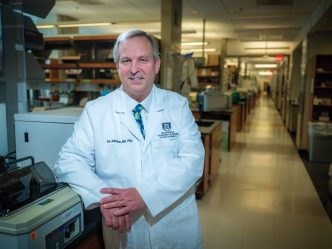Matt and Julianne Kirkland’s quadruplets were born two months early. In recognition of Neonatal Intensive Care Awareness Month in September, find out what life has been like for the family with four toddlers since they left the Children’s Hospital of Georgia NICU in 2015.
Two washers, two dryers, and two refrigerators … Many things doubled in the Kirkland household following the birth of quadruplets in 2015 – including the size of their family.
Matt and Julianne Kirkland decided to try for a third child when their sons Campbell and Jack, were 5 and 3, respectively. To their surprise, Julianne became pregnant with not one, but four babies.
“Who has four babies?” she said. “My head was spinning. I was not prepared for this news.”
Matt was speechless.
When he finally came to terms with the situation, he said to Julianne, “Well, OK. God is really blessing us, so He must think we can handle this.”
They prayed about it and agreed to take things one step at a time.
“I told Matt, ‘Let’s just get through the second ultrasound,’” Julianne said.
But at that next appointment, the Kirklands were shocked by the doctor’s recommendation. Because of the dangers involved in carrying quadruplets, he advised them to terminate two of the fetuses.
“I told him that was not an option for us,” Julianne said.
“How do you choose which ones live?” Matt asked. “You can’t make that choice. Of course we continued with the pregnancy as God had planned.”
“I knew they were my babies, not just fetuses,” Julianne said. “I decided to go to a doctor who believed in us and our babies.”
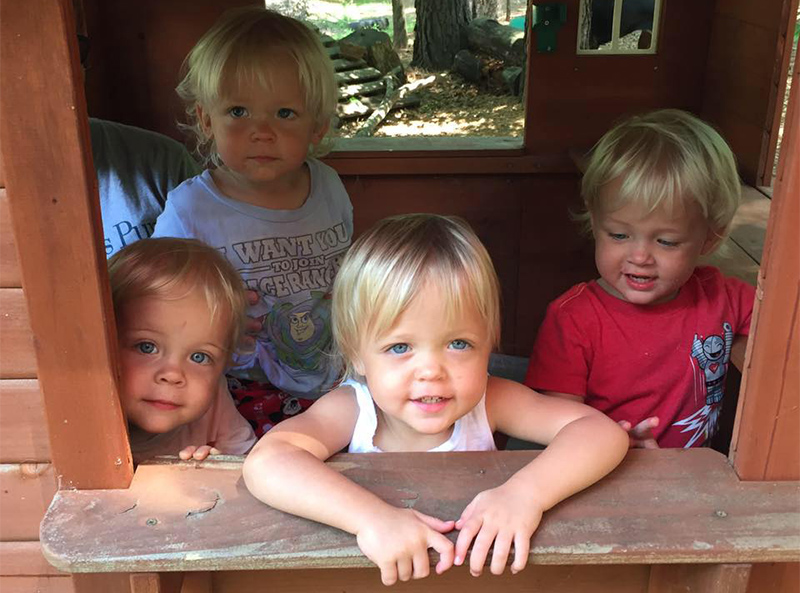
The Kirklands found the hope they were seeking in Dr. Paul Browne, a maternal-fetal medicine physician specializing in high-risk pregnancies at Augusta University Medical Center.
“Dr. Browne is so smart, and he has such a great bedside manner,” said Julianne. “He said, ‘We can do this.’ He made me feel like I could do it, too, and that my babies mattered.”
“The reassurance from Dr. Browne and the team in Augusta was awesome,” said Matt. “Getting to 24 weeks was the first big hurdle.”
After passing 24 weeks, which was the established point of viability for the quads, Julianne and Dr. Browne came to an agreement that she would make it to 26 weeks, according to Matt. After that, the goal was 28 weeks, then 30, and so on.
Swathed in prayer and support from their family and friends, Julianne, Matt, the babies and the team at the hospital all worked together to reach each of these milestones, recognizing that each additional week the pregnancy progressed would also improve the chances of survival for all four babies.
Since multiples are often born prematurely, the Kirklands were introduced to the neonatal intensive care team at the Children’s Hospital of Georgia as they prepared for the quadruplets’ birth and an extended stay in the NICU.
“We had practice drills on what the delivery was going to look like. It gave me such a sense of peace that we were in the right place, and my babies were going to be fully taken care of,” Julianne said.
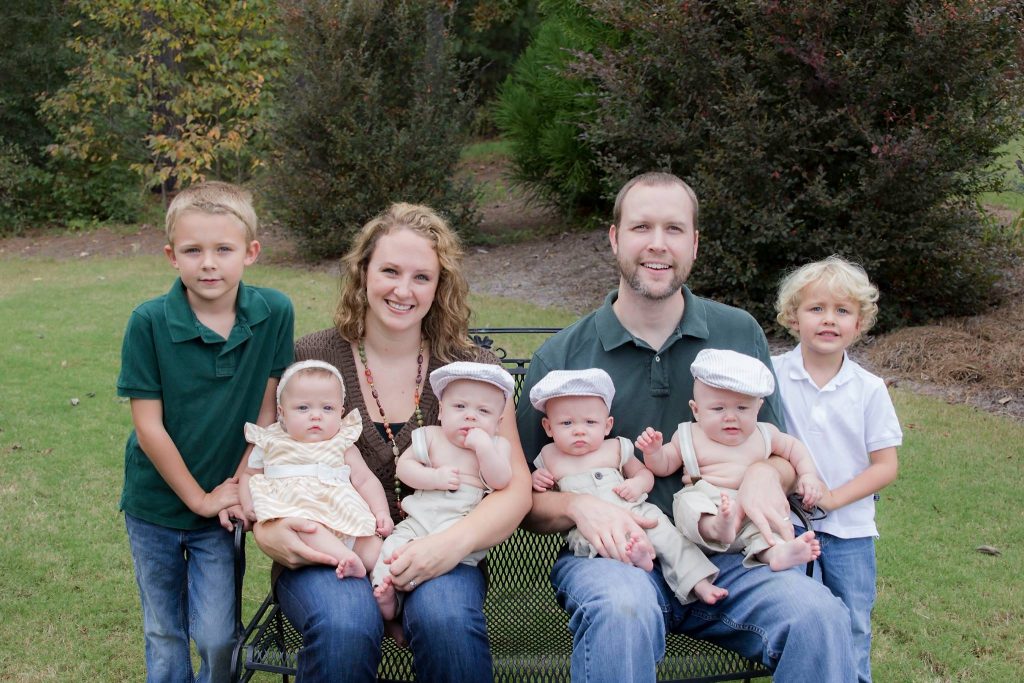
When it was time to head to the delivery room, she said she was surprised once again by the level of care exhibited at the hospital.
“The hallway was lined with all the people who were going to be a part of the delivery. As they wheeled me along, I looked at each of them and said, ‘Thank you, thank you, thank you!’ It was a very special experience to go down that hallway and see all those faces and know that they were all there for me, for my babies. I still get goosebumps.”
Dr. Browne and a team of more than three dozen other health professionals in various specialties assembled in Labor and Delivery at AU Medical Center, where Julianne’s babies would be delivered by C-section. At 31 weeks and 1 day, the Kirklands welcomed three boys and a girl – Ashton Blake, Walker Hayes, Meyers Wayne and Bradlee Ann, overcoming incredible odds.
The Kirkland quadruplets spent nearly two months at the Children’s Hospital of Georgia, where they received the highest level of NICU care available by American Academy of Pediatrics standards. Besides being about nine weeks early, the newborns were otherwise healthy.
“I can’t remember a whole lot about that first year except coming home from the hospital,” Matt admits.
“It was hard to adapt, because what worked for one kid did not work for the set,” Julianne said.
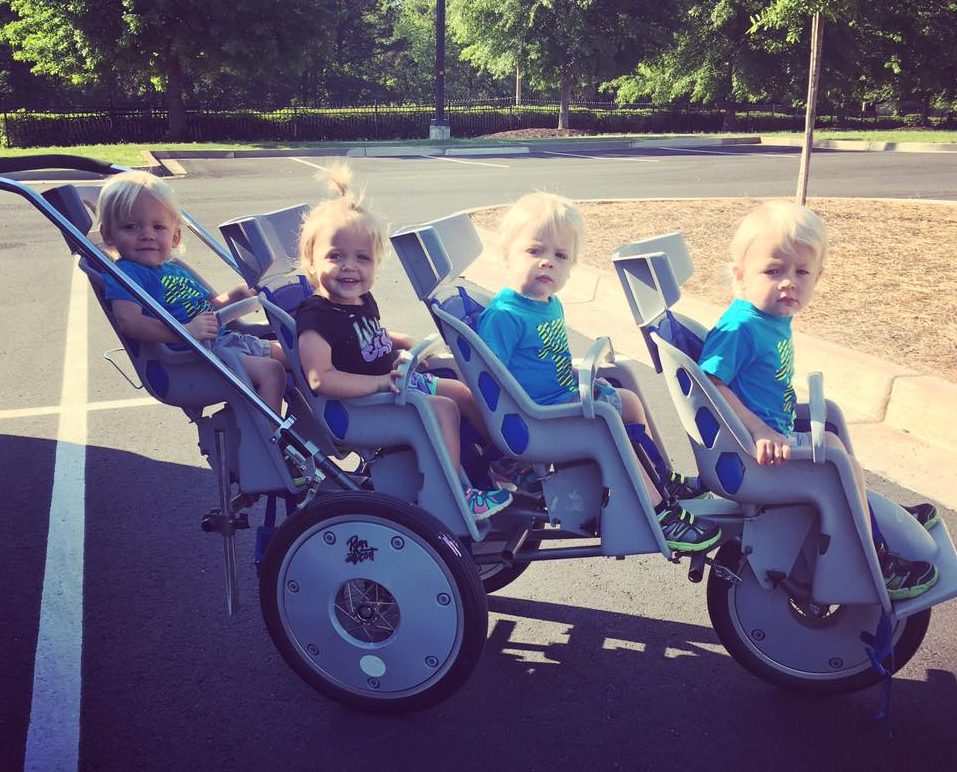
Having four toddlers in the house is quite an experience.
“At times it can be really chaotic,” Julianne said, sharing a story about when they broke down a door. She also pointed out the crayon artwork that colors several walls at their Watkinsville, Georgia, home. “But it has been such a blessing seeing Jack and Campbell bond and grow with them. They bring so much love into our home.”
“I could not envision life without them,” said Matt. “These four have definitely changed our lives and our faith as well.”
[chog20]
 Augusta University
Augusta University
